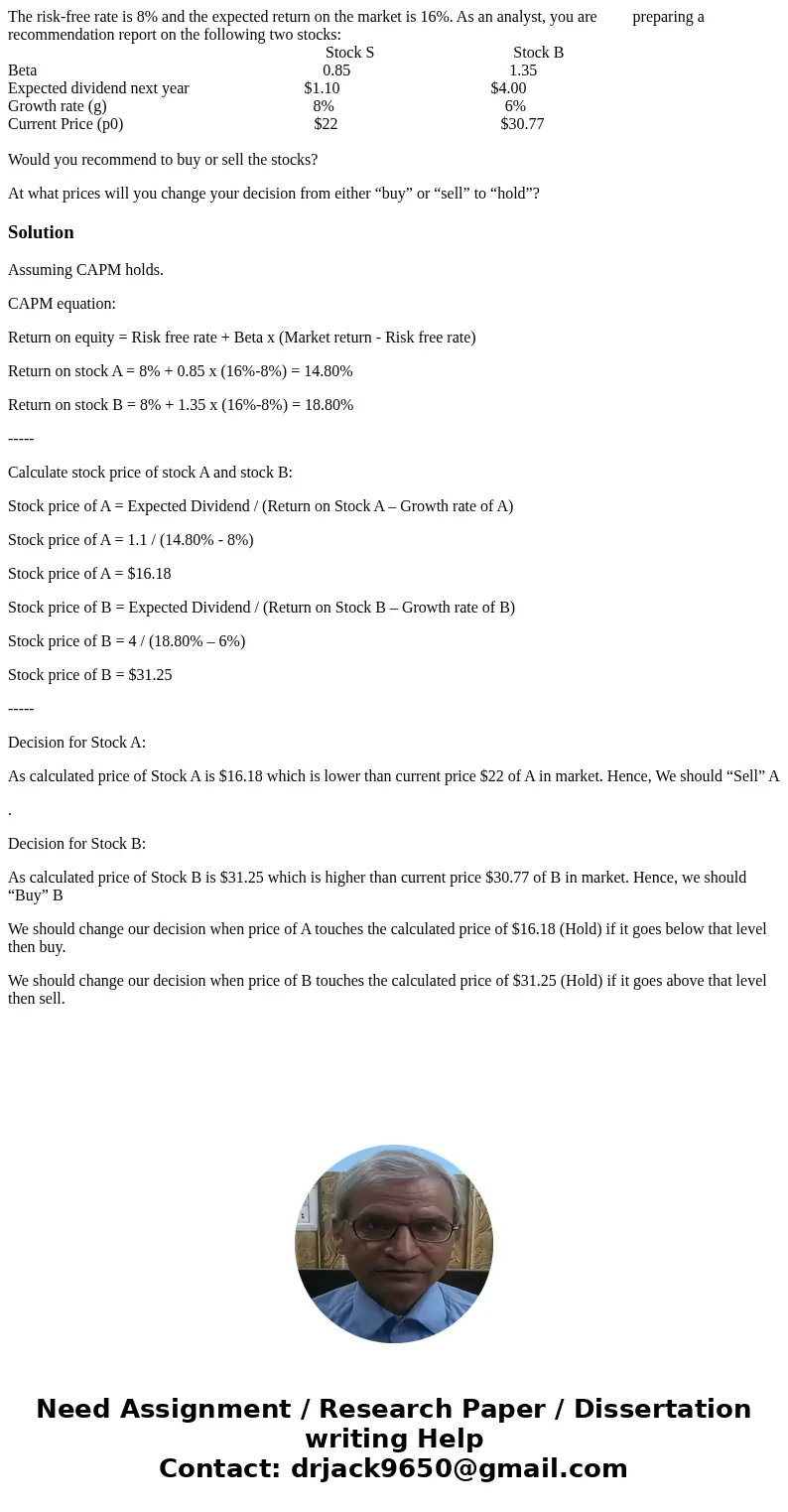The riskfree rate is 8 and the expected return on the market
The risk-free rate is 8% and the expected return on the market is 16%. As an analyst, you are preparing a recommendation report on the following two stocks:
Stock S Stock B
Beta 0.85 1.35
Expected dividend next year $1.10 $4.00
Growth rate (g) 8% 6%
Current Price (p0) $22 $30.77
Would you recommend to buy or sell the stocks?
At what prices will you change your decision from either “buy” or “sell” to “hold”?
Solution
Assuming CAPM holds.
CAPM equation:
Return on equity = Risk free rate + Beta x (Market return - Risk free rate)
Return on stock A = 8% + 0.85 x (16%-8%) = 14.80%
Return on stock B = 8% + 1.35 x (16%-8%) = 18.80%
-----
Calculate stock price of stock A and stock B:
Stock price of A = Expected Dividend / (Return on Stock A – Growth rate of A)
Stock price of A = 1.1 / (14.80% - 8%)
Stock price of A = $16.18
Stock price of B = Expected Dividend / (Return on Stock B – Growth rate of B)
Stock price of B = 4 / (18.80% – 6%)
Stock price of B = $31.25
-----
Decision for Stock A:
As calculated price of Stock A is $16.18 which is lower than current price $22 of A in market. Hence, We should “Sell” A
.
Decision for Stock B:
As calculated price of Stock B is $31.25 which is higher than current price $30.77 of B in market. Hence, we should “Buy” B
We should change our decision when price of A touches the calculated price of $16.18 (Hold) if it goes below that level then buy.
We should change our decision when price of B touches the calculated price of $31.25 (Hold) if it goes above that level then sell.

 Homework Sourse
Homework Sourse